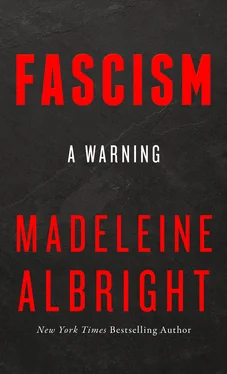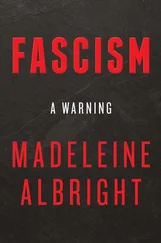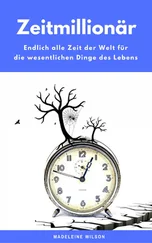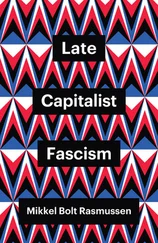Growing older, I followed in my father’s footsteps and became a professor. Among my specialties was Eastern Europe, where countries were dismissed as satellites orbiting a totalitarian sun, and where it was widely thought that nothing interesting ever happened and nothing of importance would ever change. Marx’s dream of a workers’ paradise had degenerated into an Orwellian nightmare; conformity was the highest good, informants kept watch on every block, whole countries lived behind barbed wire, and governments insisted that down was up and black was white.
Then, when change did come, it was with a velocity that amazed. In June 1989, the decade-old demands of dockworkers and the inspiration of a pope born in Wadowice brought democratic governance to Poland. That October, Hungary became a democratic republic, and in early November the Berlin Wall was breached. In those miraculous days, our televisions brought news each morning of what had long seemed impossible. I can still picture the decisive moments of my native Czechoslovakia’s Velvet Revolution, so called because it was secured without the widespread cracking of heads or gunfire. The time was a frosty afternoon in late November. In Prague’s historic Wenceslas Square, a crowd of 300,000 joyously rattled keys to emulate bells tolling the end of Communist rule. On a balcony overlooking the throng stood Václav Havel, the valiant playwright who six months earlier had been a prisoner of conscience and five weeks later would be sworn in as president of a free Czechoslovakia.
In that instant, I was among the many who felt that democracy had aced its severest test. The once mighty USSR, made fragile by economic weakness and ideological weariness, shattered like a dropped vase on a stone floor, liberating Ukraine, the Caucasus, the Baltics, and Central Asia. The nuclear arms race subsided without blowing any of us to bits. In the East, South Korea, the Philippines, and Indonesia cast off longtime dictators. In the West, Latin America’s military rulers made way for elected presidents. In Africa, the freeing of Nelson Mandela—another prisoner who became president—engendered hopes of a regional renaissance. Around the globe, countries meriting the label “democracy” expanded from thirty-five to more than one hundred.
In January 1991, George H. W. Bush told Congress that “the end of the Cold War has been a victory for all humanity … and America’s leadership was instrumental in making it possible.” Across the Atlantic, Havel added, “Europe is attempting to create a historically new kind of order through the process of unification … a Europe in which no one more powerful will be able to suppress anyone less powerful, in which it will no longer be possible to settle disputes with force.”
Today, more than a quarter century later, we must ask what has happened to that uplifting vision; why does it seem to be fading instead of becoming more clear? Why, per Freedom House, is democracy now “under assault and in retreat”? Why are many people in positions of power seeking to undermine public confidence in elections, the courts, the media, and—on the fundamental question of earth’s future—science? Why have such dangerous splits been allowed to develop between rich and poor, urban and rural, those with a higher education and those without? Why has the United States—at least temporarily—abdicated its leadership in world affairs? And why, this far into the twenty-first century, are we once again talking about Fascism?
ONE REASON, FRANKLY, IS DONALD TRUMP. IF WE THINK OF FASCISM as a wound from the past that had almost healed, putting fTrump in the White House was like ripping off the bandage and picking at the scab.
To the political class of Washington, D.C.—Republican, Democrat, and independent alike—the election of Trump was so startling it would have caused an old-time silent film comedian to clench his hat with both hands, yank it over his ears, leap in the air, and land flat on his back. The United States has had flawed presidents before; in fact, we have never had any other kind, but we have not had a chief executive in the modern era whose statements and actions are so at odds with democratic ideals.
From the early stages of his campaign and right into the Oval Office, Donald Trump has spoken harshly about the institutions and principles that make up the foundation of open government. In the process, he has systematically degraded political discourse in the United States, shown an astonishing disregard for facts, libeled his predecessors, threatened to “lock up” political rivals, referred to mainstream journalists as “the enemy of the American people,” spread falsehoods about the integrity of the U.S. electoral process, touted mindlessly nationalistic economic and trade policies, vilified immigrants and the countries from which they come, and nurtured a paranoid bigotry toward the followers of one of the world’s foremost religions.
To officials overseas who have autocratic tendencies, these outbursts are catnip. Instead of challenging anti-democratic forces, Trump is a comfort to them—a provider of excuses. In my travels, I hear the same questions all the time: If the president of the United States says the press always lies, how can Vladimir Putin be faulted for making the same claim? If Trump insists that judges are biased and calls the American criminal system a “laughingstock,” what is to stop an autocratic leader like Duterte of the Philippines from discrediting his own judiciary? If Trump accuses opposition politicians of treason merely for failing to applaud his words, what standing will America have to protest the jailing of prisoners of conscience in other lands? If the leader of the world’s most powerful country views life as a dog-eat-dog struggle in which no country can gain except at another’s cost, who will carry the banner for international teamwork when the most intractable problems cannot be solved in any other way?
National leaders have a duty to serve the best interests of their countries; that is a truism. When Donald Trump talks about “putting America first,” he is stating the obvious. No serious politician has proposed putting America second. The goal is not the issue. What separates Trump from every president since the dismal trio of Harding, Coolidge, and Hoover is his conception of how America’s interests are best advanced. He conceives of the world as a battlefield in which every country is intent on dominating every other; where nations compete like real estate developers to ruin rivals and squeeze every penny of profit out of deals.
Given his life experience, one can see how Trump might think that way, and there are certainly cases in international diplomacy and commerce where a clear separation between winner and loser is evident. However, at least since the end of World War II, the United States has championed the view that victories are more readily won and easier to sustain through cooperative action than by nations acting alone.
The generation of Franklin Roosevelt and Harry Truman argued that states would do best by promoting shared security, prosperity, and freedom. The 1947 Marshall Plan, for example, was grounded in a recognition that the American economy would stagnate without European markets able to buy what U.S. farmers and manufacturers had to sell. This meant that the way to put America first was to help our European (and Asian) partners rebuild and develop dynamic economies of their own. The same thinking led to Truman’s Point Four Program, which made U.S. technical assistance available in Latin America, Africa, and the Middle East. A comparable approach has served us well in the security realm. Presidents from Roosevelt to Obama have sought to help allies protect themselves and to engage in collective defense against common dangers. We did this not in a spirit of charity but because we had learned the hard way that problems abroad, if unaddressed, could, before long, imperil us.
Читать дальше












